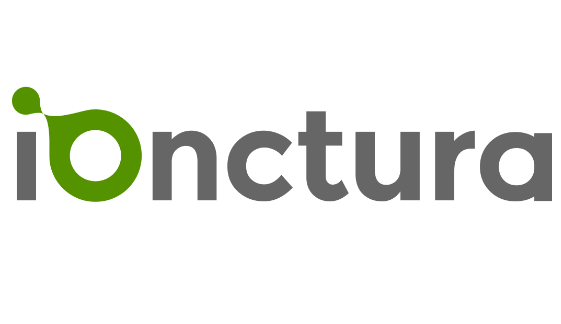
iOnctura SA, a recently founded late stage preclinical immuno-oncology company, announced today the formation of an international Scientific Advisory Board (SAB).
iOnctura is developing a pipeline of selected assets with novel biology that target and modulate mechanisms that drive immunosuppression in the tumour microenvironment (TME) to boost efficacy and maximize the therapeutic potential of checkpoint inhibitors. Such immune-suppression is thought to be one of the main reasons why a considerable number of patients do not respond to first generation checkpoint inhibitors. The company’s lead program, a potentially first in class highly selective PI3K delta inhibitor, is scheduled to enter clinical development in 2018.
The Scientific Advisory Board will closely work with iOnctura’s management team to maximise the potential of iOnctura’s pipeline and rapidly progress its assets through pre-clinical and clinical proof of concept, guided by strong scientific rationale and translational science.
The SAB includes some of the world’s leading experts in tumor immunology and checkpoint inhibitor therapy:
Dr Sergio A. Quezada, Head of Immune Regulation and Tumour Immunotherapy Research Group at University College London
Dr James Larkin, Consultant Medical Oncologist at The Royal Marsden, Vice Chair of the Cancer Research UK Clinical Research Committee and Lead of the Uncommon Cancers Theme at The Royal Marsden/The Institute of Cancer Research NIHR Biomedical Research Centre
Professor Stuart Farrow, Director of Biology, Cancer Research UK’s Therapeutic Discovery Laboratories.
Dr Joern-Peter Halle, Head of External Innovation & Translational Innovation Platform Immuno-Oncology at the biopharma business of Merck KGaA, Darmstadt, Germany KGaA, Darmstadt, Germany
iOnctura, has already built a pipeline of promising programs through its alliances with Merck KGaA, Darmstadt, Germany KGaA, Darmstadt, Germany – which operates its biopharma business as EMD Serono in the US and Canada – and Cancer Research UK, and has entered into a research collaboration with Cancer Research UK’s Therapeutic Discovery Laboratories.
On welcoming the members to the SAB, Catherine Pickering, CEO and co-founder of iOnctura, said: “We are delighted to have attracted this prestigious group of experts to our Scientific Advisory Board. Comprised of world renowned scientists and clinicians, their knowledge and experience in the field of cancer immunology will be invaluable as we rapidly progress our pipeline through pre-clinical development and clinical proof of concept, and will support our goal to maximize the therapeutic potential of checkpoint inhibitors for patients.”
For more information contact:
Optimum Strategic Communications
Mary Clark, Supriya Mathur, Hollie Vile
Email:ionctura@optimumcomms.com
Tel: +44 (0) 203 714 1787
SCIENTIFIC ADVISORY BOARD
Dr Sergio A. Quezada
Dr Quezada earned an undergraduate degree in biochemistry from the P. Universidad Católica de Chile and a Ph.D. from Dartmouth Medical School in the US, where his research focused on the mechanisms for the induction of transplantation tolerance. Working with Prof Randy Noelle at Dartmouth, Dr. Quezada developed a model to study anti-CD154 graft tolerance and made several fundamental contributions to the understanding of the immune regulation and mechanisms of transplantation rejection and tolerance.
In 2004, Dr Quezada joined the laboratory of Dr James Allison at Memorial Sloan-Kettering Cancer Center, where he has carried out postdoctoral research aimed at understanding the mechanisms governing anti-tumor T-cell immunity and how these mechanisms can be manipulated for the generation of potent anti-tumor immune responses. In November 2011, Dr Quezada joined the University College London Cancer Institute in the United Kingdom as Head of the Immune Regulation and Tumor Immunotherapy group. His research group at UCL focuses in the study of the mechanism of action of anti-CTLA-4, anti-PD-1 and other immune-modulatory antibodies targeting co-inhibitory and co-stimulatory pathways (including ICOS, 4-1BB, OX-40) and used as novel anticancer therapies. In the last years, through a number of clinical collaborations, his team gained significant expertise in the characterisation and interrogation of immune reactivity and function within the microenvironment of different human cancers including melanoma, lung and kidney cancers.
Dr Quezada was a Cancer Research Institute Fellow from 2005 to 2008 and has been the recipient of Dartmouth’s John W. Strohbern Medal for excellence in biomedical research, the Cancer Research Institute (USA) New Investigator Award and a Cancer Research UK Career Development Fellowship. Most recently he was awarded with a Cancer Research UK Senior Cancer Research Fellowship.
Dr James Larkin
Dr James Larkin is a Consultant Medical Oncologist specialising in the treatment of melanoma and cancers of the kidney. Dr Larkin took a first in Natural Sciences from Cambridge University and undertook clinical training at Oxford University, qualifying in 1996. He underwent general medical training in London and in 2001 won a Medical Research Council Fellowship for a Clinician, carrying out laboratory research at The Institute of Cancer Research which led to the award of a PhD. He completed specialist training at The Royal Marsden and was appointed a Consultant in 2008.
His research interests involve trying to understand cancer and its consequences better as well as developing improved treatments, particularly with targeted therapies and immunotherapies. He is Chair of the Cancer Research UK Clinical Research Monitoring Panel, a medical advisor to the patient advocacy group Melanoma UK, a trustee of the Kidney Cancer Support Network and the only non-US member of the Board of Directors of the Kidney Cancer Association. He is a past NIHR National Specialty Lead for Early Phase Oncology Trials as well past Chair of both the NCRI Renal Cancer Clinical Studies Group and The Royal Marsden/ICR Committee for Clinical Research. He is currently Vice Chair of the Cancer Research UK Clinical Research Committee and Lead of the Uncommon Cancers Theme at the Royal Marsden/ICR Biomedical Research Centre for Cancer.
Professor Stuart Farrow
Professor Stuart Farrow joined Cancer Research UK’s Therapeutic Discovery Laboratories (then Cancer Research Technology Discovery Laboratories) as Director of Biology in April 2015, where he leads the discovery team responsible for oncology target validation and disease positioning. He has a particular focus on discovery of new therapeutic opportunities in immuno-oncology. Before joining Cancer Research UK’s Therapeutic Discovery Laboratories he spent more than 20 years in drug discovery and leadership roles in the pharmaceutical industry. Most recently he was based at the University of Manchester, where he directed the establishment of the Manchester centre for collaborative research in inflammation and immunology (MCCIR), a £15M initiative funded by GSK, AstraZeneca and the University of Manchester. He has also served as a translational biology expert on the UK MRC Infection and Immunity Board. Stuart has worked in several therapeutic areas, leading discovery programmes from early discovery through to commercial launch, and has also directed major translational research initiatives. He has an extensive publication record with particular emphasis on immunology and inflammation.
Dr Joern-Peter Halle
Dr Joern-Peter Halle is leading the External Innovation and Translational Innovation Platform Immuno-Oncology function at the biopharma business of Merck KGaA, Darmstadt, Germany KGaA, Darmstadt, Germany. Most recently, he was Head of the President’s Office and of Strategy and Business operations at the biopharma business of Merck KGaA, Darmstadt, Germany KGaA, Darmstadt, Germany. Prior to this, he was responsible for the program leaders of the oncology portfolio, part of the cross-functional oncology leadership team, and Head of Early Stage Licensing of Merck KGaA, Darmstadt, Germany KGaA, Darmstadt, Germany. He started his career in Merck KGaA, Darmstadt, Germany KGaA, Darmstadt, Germany 12 years ago as a member of the corporate development team and was member of the Serono acquisition and integration team. Prior to joining Merck KGaA, Darmstadt, Germany KGaA, Darmstadt, Germany, he co-founded a biotech company focusing on R&D in dermatology where he served as a Chief Business Officer. Peter holds a PhD in molecular biology from the University of Konstanz and began his career as a postdoc in biochemistry at the Gene Center Munich.
About iOnctura iOnctura is a biopharmaceutical company focusing on novel therapeutics to modulate key culprits of immunosuppression in the tumor microenvironment. iOnctura aims to improve current immune checkpoint therapies by developing novel drugs with potential first or best-in-class safety and efficacy profiles that when combined with checkpoint inhibition have the potential to optimize clinical outcomes. Through its partnerships with Merck KGaA, Darmstadt, Germany KGaA, Darmstadt, Germany and Cancer Research UK, iOnctura has established a pipeline of pre-clinical molecules to advance towards the clinic in combination with first generation checkpoint inhibitors. iOnctura, supported by a world renowned scientific advisory board and, with its access to Cancer Research UK’s Therapeutic Discovery Laboratories and network of academic collaborators, is well-positioned to rapidly establish novel combination therapies in the field of cancer immunology. Headquartered in Geneva, Switzerland, iOnctura was founded by M Ventures, the strategic venture investment arm of Merck KGaA, Darmstadt, Germany KGaA, Darmstadt, Germany in June 2017. Hakan Goker, Senior Investment Director at M Ventures, and Keno Gutierrez represent M Ventures on iOnctura’s board of directors.

